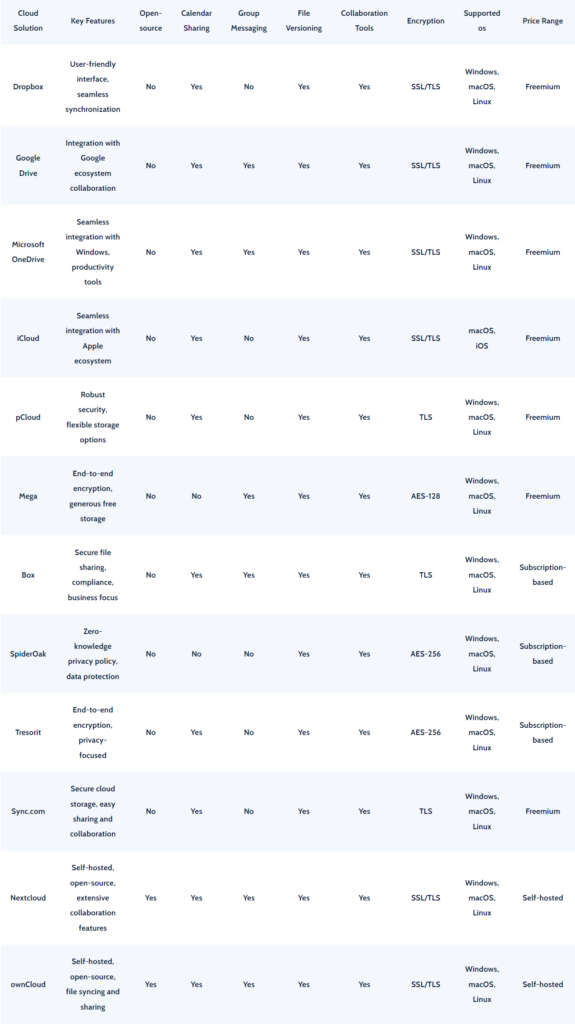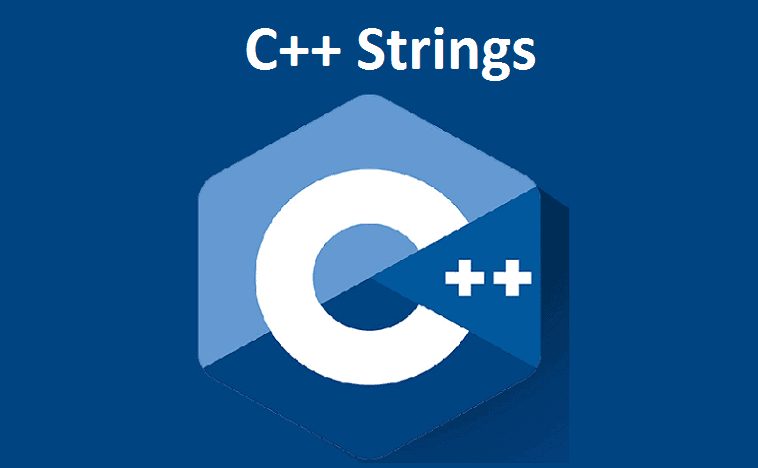Comparing Nextcloud and ownCloud: Choosing the Ultimate Cloud Server Solution

In the recent past, handling our digital files was a challenging endeavor. We relied on physical storage devices such as USB drives or external hard drives, ensuring their safety and avoiding loss or damage. It felt akin to carrying a weighty chest containing our valuable data, filled with cherished memories and vital documents.
Yet, the landscape has shifted. We’ve transitioned into the era of cloud storage, where our data resides securely in virtual realms. It’s akin to possessing a personal storage unit in the celestial expanse, accessible from any location with an internet connection.
Jump To...
Cloud computing has indeed revolutionized the landscape of data storage, access, and management. It provides a convenient and secure method to store and share files, fostering collaboration among individuals and teams. Moreover, cloud technology offers flexible access from any internet-connected device, including mobile devices, enabling seamless productivity and connectivity regardless of location.
Within the extensive array of cloud solutions on offer, Nextcloud and ownCloud emerge as prominent platforms, enabling individuals and organizations to establish personalized cloud environments. But which platform excels over the other? Let’s explore and compare their features to determine their respective strengths and weaknesses.
What are individual cloud solutions?
Personal cloud solutions are online services tailored to offer individuals a secure and private space for managing, storing, and accessing their digital content.
Unlike conventional cloud storage services primarily targeting business users, personal cloud solutions are expressly designed with individuals in mind. These solutions empower users to establish their virtual cloud storage environments, delivering a variety of features and capabilities to cater to their personal requirements.
How do individual cloud solutions operate?
Personal cloud solutions operate by harnessing the capabilities of the internet and cloud technology to provide individuals with secure and convenient control over their data.
Here’s a breakdown of the key components and functionalities involved:
Storage Space: Users are allocated a designated amount of storage space to house their documents, photos, videos, and other digital content. This storage space is scalable, allowing users to expand their capacity as their needs evolve.
Cloud Synchronization: Personal cloud solutions facilitate seamless synchronization across multiple devices. Changes made to files or folders on one device are automatically propagated to all connected devices. This ensures users have access to the latest versions of their files from any platform with internet connectivity.
Data Security and Privacy: Privacy and security represent pivotal aspects of personal cloud solutions. These services employ various encryption techniques to safeguard user data from unauthorized access. Additionally, users can configure additional security measures, such as two-factor authentication, to bolster the protection of their personal information.
Remote Access and Sharing: A primary advantage of personal cloud solutions is the capability to remotely access and share files. Users can retrieve their content from any location using web browsers or dedicated applications. Moreover, they can securely share files or folders with family, friends, or colleagues, granting them controlled access to specific content.
Additional Features: Personal cloud solutions frequently incorporate supplementary features to enrich the user experience. These may encompass automated backups, file versioning, media streaming functionalities, collaborative document editing, and seamless integration with other applications and services.
Nextcloud vs. OwnCloud
Nextcloud and ownCloud are self-hosted cloud storage solutions that empower users to take control of their data. They provide comparable features, enabling seamless storage, access, and file sharing. Picture them as your personalized virtual filing cabinets, where instead of physical drawers, you have a secure digital space to organize and manage your files.
What are the reasons someone might require Nextcloud or ownCloud?
Imagine you prioritize data privacy and prefer safeguarding your data on your own server rather than depending on third-party providers. Or perhaps you belong to a business or organization that requires rigorous control over sensitive information. In such scenarios, both Nextcloud and ownCloud provide feature-rich solutions that align with your needs and value data sovereignty.
With Nextcloud and ownCloud, you wield the authority to construct your personal cloud storage system tailored precisely to your needs. They emphasize data sovereignty, enabling encryption of your data and customization of access controls. Furthermore, they provide a range of advantages, including security features, file sharing and synchronization capabilities, a remote wipe option, and a collaboration platform.
Nextcloud, a more recent entrant in the field, builds upon the groundwork laid by ownCloud. It offers an extensive suite of tools and features designed to meet both personal and professional requirements. With Nextcloud, you can securely store and share files, synchronize them across internet-connected devices, and collaborate with others. It’s akin to having your private cloud infrastructure without depending on external providers.
Conversely, ownCloud pioneered the notion of self-hosted cloud storage. It empowers you to establish your personalized cloud environment on your personal server. With ownCloud, you retain full control over your data, guaranteeing its privacy and security.
What exactly is Nextcloud?
Nextcloud, crafted by Nextcloud GmbH, stands as a robust cloud platform, delivering a diverse spectrum of features and functionalities to bolster users in managing their data and collaboration requirements.
Nextcloud Hub, positioned at its nucleus, offers users a comprehensive array of collaboration tools and services for secure file storage. Serving as the central data repository for all data and collaboration needs, Nextcloud Hub functions as a collaboration platform equipped with a seamless and user-friendly web interface. This interface facilitates effortless file uploads and collaboration among team members.
Additionally, Nextcloud incorporates support for Cleantalk Pixel, a tool designed to combat spam and uphold a clean and secure collaboration environment.
Users of Nextcloud enjoy access to a variety of client applications, including desktop clients compatible with various operating systems. These clients facilitate seamless file synchronization between your devices and the Nextcloud server, guaranteeing you always have access to the most recent versions of your Nextcloud files, irrespective of your location. With the capacity to effortlessly integrate new features and broaden functionality, Nextcloud empowers users to customize their cloud experience to align with their specific requirements.
A prominent feature distinguishing Nextcloud is its steadfast emphasis on user accounts and security. Each user can possess their dedicated account, affording granular control over access permissions and sharing configurations. Nextcloud users benefit from robust security measures, including encryption and two-factor authentication, fortifying their data against unauthorized access and safeguarding their privacy. With end-to-end encryption, two-factor authentication, and advanced access control settings, Nextcloud grants users complete control over who can access their files and how they are safeguarded.
Nextcloud embraces the ethos of the open-source community, fostering collaboration and continual enhancement. Its open-source nature ensures that the source code is readily accessible, enabling developers and users to contribute to its evolution and tailor it to their specific needs. This vibrant community ensures Nextcloud remains innovative, adaptable, and continually progressing.
For those inclined towards on-premises solutions, Nextcloud affords the flexibility to host your own Nextcloud server. Alternatively, Nextcloud can also be hosted in a trusted data center, providing scalability, reliability, and ease of management.
In terms of scalability and performance, Nextcloud boasts infinite scaling capabilities. This implies that the platform can accommodate a growing volume of data and users without compromising on performance or functionality. Thus, Nextcloud is well-equipped to meet the needs of both small teams and expanding organizations.
What exactly is OwnCloud?
ownCloud serves as a centralized web interface, acting as a comprehensive hub for managing documents. This interface allows users to seamlessly handle files, facilitating efficient organization and distribution from any internet-connected device.
Whether users are involved in document editing, sharing media files, or collaborating on projects, ownCloud offers a user-friendly environment designed to streamline workflows and enhance overall productivity.
ownCloud’s notable feature is its strong file-sharing capabilities, providing a seamless and secure process with just a few clicks. Users can easily share files, whether collaborating with other ownCloud users or individuals who don’t have an ownCloud account. This functionality enhances communication and collaboration efficiency, whether within the ownCloud environment or with external partners.
Whether it’s within your company or with external collaborators, ownCloud enables you to collaborate seamlessly.
ownCloud’s flexibility goes beyond the web interface. It provides dedicated mobile applications, allowing you to access and manage your files on the go. These mobile apps offer a seamless experience, enabling you to upload, download, and synchronize files between your mobile device and the cloud server. This adaptability ensures that your files are within reach at all times, regardless of your location or the device in use.
Furthermore, ownCloud seamlessly integrates with various applications and services, extending its functionalities beyond file storage and sharing. Integrations with popular productivity tools enable collaborative document editing, synchronization of contacts and calendars, and the creation and management of customized business apps. ownCloud serves as a central platform, allowing you to centralize your digital activities and streamline your workflows.
In terms of security, ownCloud places a high priority on data protection and privacy. Utilizing encryption and advanced access controls, you can ensure that your files are secure and accessible only to authorized individuals. ownCloud also allows you to generate public links, providing controlled access to specific files for external parties. This feature proves convenient for sharing files with clients, partners, or other stakeholders while retaining complete control.
In addition to file sharing and storage, ownCloud offers a plethora of additional features crafted to elevate productivity and collaboration. Among these are document editing and versioning, allowing multiple users to collaborate on the same file simultaneously and effortlessly track changes.
The inclusion of shared folders enables teams to collaborate seamlessly, accessing and modifying files within a unified workspace. ownCloud’s communication features further facilitate efficient team collaboration, ensuring a smooth flow of information within your organization.
Side-by-Side Comparison - ownCloud vs. Nextcloud
Absolutely, understanding the key differences between platforms is crucial for making informed decisions. Let’s delve into the specifics and explore the nuances of each platform.
Feature | ownCloud | Nextcloud |
File Storage and Sync | ✓ | ✓ |
Collaborative Tools | ✓ | ✓ |
End-to-End Encryption | ✓ | ✓ |
External Storage Integration | ✓ | ✓ |
App Ecosystem | ✓ | ✓ |
Mobile Applications | ✓ | ✓ |
Calendar and Contacts | ✓ | ✓ |
Version Control | ✓ | ✓ |
Activity Monitoring | ✓ | ✓ |
Administration and Control | ✓ | ✓ |
User Management | ✓ | ✓ |
Document Editing | Collabora Online (Integration required) | OnlyOffice (Integration required) |
Virtual File System | – | ✓ |
LDAP and Active Directory | – | ✓ |
Advanced Sharing Options | – | ✓ |
Data Loss Prevention | – | ✓ |
Edit Document
Nextcloud and ownCloud both provide seamless integration with document editing platforms, enhancing collaboration within teams. Nextcloud seamlessly integrates with Collabora Online, enabling users to collaborate on documents in real time. On the other hand, ownCloud offers integration with OnlyOffice, facilitating real-time collaboration and a smooth experience for teams working on shared files. These integrations empower users to work collaboratively on documents, fostering efficient and streamlined teamwork.
Virtual File System
Nextcloud provides support for a virtual file system, allowing users to manage files on-demand without occupying local storage space. This feature optimizes storage management by downloading files only when necessary.
In contrast, ownCloud, at present, does not incorporate a virtual file system into its capabilities.
LDAP and Active Directory
Nextcloud offers native support for LDAP and Active Directory, simplifying the integration process with existing user directories and authentication systems. This support enhances the ease with which Nextcloud can be integrated into various organizational setups.
Similarly, ownCloud also provides this feature, enabling smooth integration with existing user management infrastructure. This capability in ownCloud ensures compatibility with diverse authentication systems and facilitates seamless collaboration within established user directories.
Sophisticated Sharing Features
Nextcloud provides advanced sharing options, including features like password-protected links, the ability to set expiration dates for shared files, and the capability to define specific permissions for shared folders. These features empower users with greater control and enhance the security of shared files.
While ownCloud supports basic file sharing functionality, it does not offer the same level of advanced sharing options as Nextcloud. The advanced sharing features in Nextcloud contribute to a more flexible and secure file-sharing environment, allowing users to tailor sharing settings according to their specific needs and preferences.
Preventing Data Loss
Nextcloud includes built-in data loss prevention mechanisms, such as file versioning and the ability to restore deleted files from the trash bin. These features are designed to safeguard data and enable recovery in the event of accidental deletions or modifications.
Similarly, ownCloud also provides similar data loss prevention mechanisms. Both Nextcloud and ownCloud prioritize the protection and recovery of data, offering users reassurance against unintentional data loss or alterations.
Cost Structures
OwnCloud and Nextcloud provide diverse pricing options depending on the deployment type and additional features desired.
Below is a streamlined overview of their pricing frameworks.
ownCloud
- Community Edition: Complimentary and open-source.
- Enterprise Edition: Pricing details accessible upon inquiry, providing access to extra enterprise-level features and support.
- Hosting Partners: Pricing fluctuates based on the selected hosting provider and the preferred storage capacity.
Nextcloud
- Community Edition: Complimentary and open-source.
- Nextcloud Standard: Costs commence at 2,500 per annum for 50 users, encompassing support and updates.
- Nextcloud Enterprise: Pricing details provided upon inquiry, delivering advanced features, scalability, and dedicated support.
Making the Right Choice
When contrasting ownCloud and Nextcloud, both platforms provide comparable fundamental features, encompassing file storage, synchronization, collaboration, and security. The choice between the two ultimately relies on users’ particular needs, budget considerations, and preferences for additional features.
It is advisable to thoroughly assess the feature sets, pricing models, and support alternatives provided by ownCloud and Nextcloud to pinpoint which solution harmonizes most effectively with your demands.
By delving into the comparison and referring to user feedback and endorsements, you can make a well-informed decision and select the personal cloud solution that aligns most fittingly with your requirements.
Exploring Alternatives: Top 10 Cloud Solutions Beyond Nextcloud and ownCloud
In the realm of personal cloud solutions, Nextcloud and ownCloud might not meet the specific requirements of every user. Whether it’s due to functionality, pricing, or other preferences, it’s crucial to explore alternative cloud solutions that provide similar features and advantages.
Here, we introduce a carefully curated assortment of the top 10 alternatives to Nextcloud and ownCloud, offering users a varied range of options to evaluate.

Frequently Asked Questions
Numerous applications in the Nextcloud App Store are available at no cost and can be installed without any charges. However, it’s worth noting that certain apps may adopt a premium or subscription-based pricing model, necessitating a purchase or license for access to specific advanced features or functionalities.
Indeed, mobile apps and clients offer file synchronization capabilities in personal cloud solutions like Nextcloud and ownCloud. Users can synchronize various data types such as contacts, calendars, and conversations. Additionally, users have the flexibility to select specific folders or files for synchronization between their mobile phones and the cloud server. Any modifications made on one device will seamlessly reflect across the desktop and other connected applications, ensuring consistency and accessibility across different platforms.
The Nextcloud desktop client does not impose specific limitations on the number of folders you can sync. Users have the flexibility to select and synchronize as many folders as their storage capacity allows, providing a customizable and adaptable approach to file synchronization.
The installation process generally includes the following steps:
Download the Nextcloud software package from the official website.
Install and configure a web server (such as Apache or Nginx) with PHP support.
Create a new database and user account on your database server.
Configure the essential server settings, including specifying the database details.
Execute the Nextcloud installation wizard, which will lead you through the setup process.
Create an admin account and set your preferred configuration options.
Finalize the installation and access your Nextcloud instance through a web browser.
Following these steps ensures a systematic installation of the Nextcloud platform for effective use.



